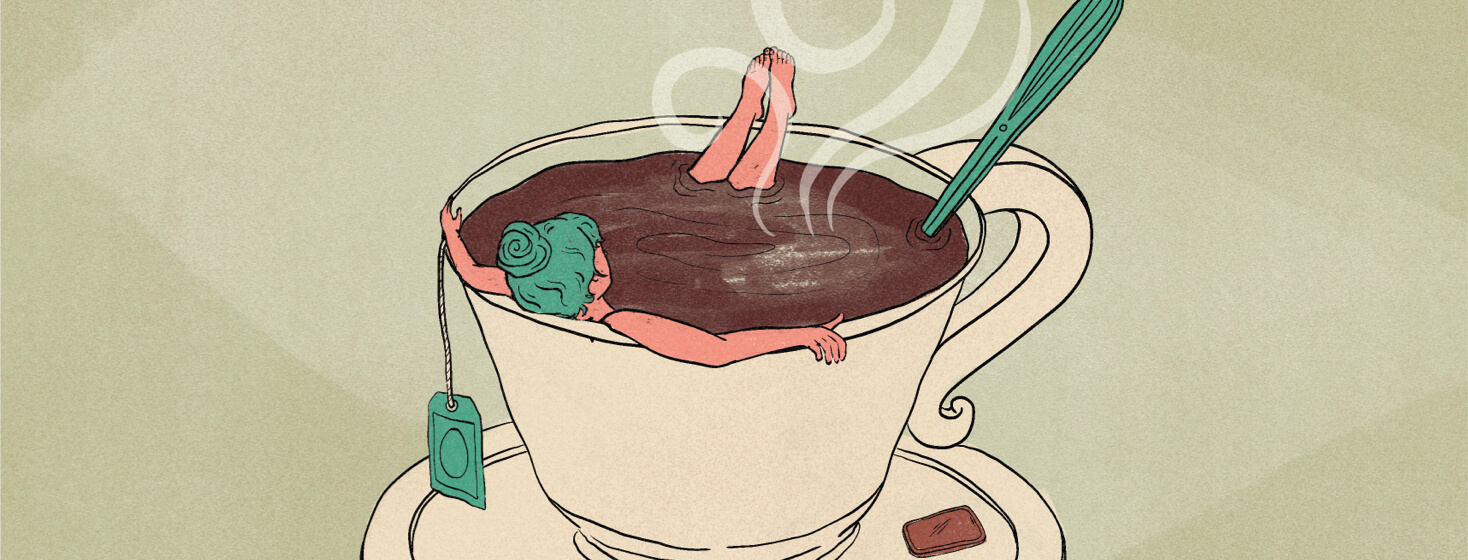Migraine and Herbal Tea
The world of herbal medicine can seem scary. But one step at a time is the best way to take it.
There are many herbal teas available to aid in migraine relief. An important element to consider when looking at herbal teas is caffeine. Some teas are caffeinated, whereas others are not. Some of the most common herbal pain relievers include ginger root, willow bark, and feverfew.
Caffeine or no caffeine?
Migraines and caffeine have a complicated relationship. For some people, caffeine can be a helpful aid in relieving some migraine pain. On the other hand, some people find caffeine to be a trigger for their migraines.
Individuals can experience caffeine withdrawal headaches. These headaches occur when an individual who normally consumes caffeine suddenly stops consuming caffeine. The caffeine withdrawal headache occurs “within 24 hours after their last caffeine intake, which is relieved within 1 hour by ingesting caffeine (100 mg) or resolves within 7 days after caffeine withdrawal.”3
Herbal pain relief
In the world of natural medicine, certain herbs can be used to help relieve some types and levels of pain. The spokesperson for the Academy of Nutrition and Dietetics, Ginger Hultin, states that tea has hydrating properties and anti-inflammatory antioxidant catechins, “compounds like theobromine and theophylline as well as volatile oils, and minerals.”2 These are the things that make herbal tea beneficial.
The World Health Organization (WHO) states that herbal medicine “contain{s} underground or aerial parts of either plants or plant materials or a combination of both.”4 While this relates more to herbal medicine capsules, it does apply to herbal medicinal teas. These herbal teas use different pieces of the plant.
Ginger root
In terms of migraines, ginger can be used to help with the pain, nausea, vomiting, and possible vertigo related to a migraine. The uses of ginger include things such as:4
- Muscle pain and swelling
- Arthritis
- Headaches
- Digestive and appetite problems
- Prevention of motion sickness
- Cold and bacterial infections due to its anti-oxidant mechanism
Ginger root is known for its anti-inflammatory properties. Some of these qualities “restrict the actions associated with prostaglandins,” which “are chemical substances that induce pain and also bring about the inflammation involving {the} circulatory system within the brain."1 This means that the pain is reduced by the effects ginger has on inflammation in the brain and lowers the chemicals that cause pain.
Willow bark
Willow Bark is exactly what it sounds like, the bark of a willow tree. Neurologist Ilene Ruhoy, M.D., Ph.D., states that "It is the original source of salicin, which is the active ingredient that makes up aspirin." It is included in many herbal ‘pain relief’ teas. Willow bark is helpful in pains, including:5
- Back pain
- Joint pain
- Muscle strain
- Dizziness
- Headaches
Additionally, it can be used to treat inflammation.
Feverfew
Feverfew is a very common herbal medicine. While The American Migraine Foundation is undecided about how effective feverfew is at stopping the pain of an ongoing migraine, there is evidence that it is “helpful for preventing migraine headaches.” Feverfew is known to treat health problems such as:2
- Fever
- Migraine headaches
- Rheumatoid arthritis
- Toothaches
- Stomachaches
- Inflammation
- Muscle spasms
This anti-inflammatory herb can “inhibit serotonin release from white blood cells and platelets, and prevent platelet aggregation.”4
As always, talk to your doctor
There are many additional herbal medicines that can be used to reduce the frequency or treat migraines. Remember, it is important to always speak to your doctor before starting an herbal remedy. You want to make sure that nothing you take will interfere with any prescription medications you may be on.
Have you tried any of these herbal teas? Have you tried any others that I did not discuss?

Join the conversation